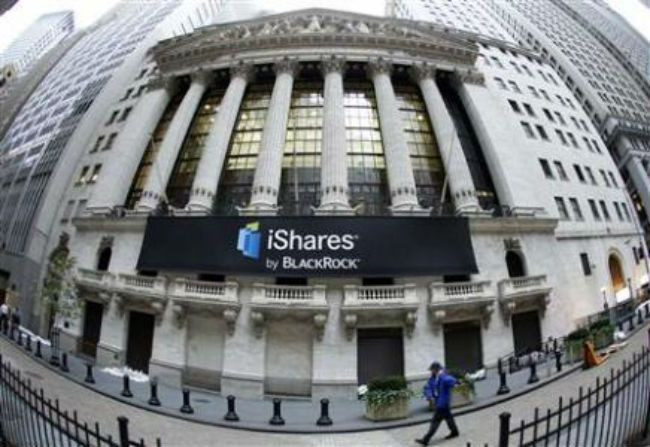
Stock index futures fell on Monday as a huge and potentially damaging hurricane was expected to hit the U.S. East Coast later in the day, and traders eyed renewed uncertainty in Europe that hit bonds in peripheral euro zone nations.
All U.S. stock markets will be closed on Monday and possibly Tuesday, the operator of the New York Stock Exchange said late on Sunday, reversing an earlier plan that would have kept electronic trading going on Monday.
Hurricane Sandy, a mammoth storm menacing the East Coast, took aim at the most densely populated U.S. region on Monday, forcing hundreds of thousands to seek higher ground, halting public transport and closing schools, businesses and government departments.
Italian political turmoil and Spanish hesitancy over seeking euro zoneassistance put the two countries on the front line of the currency area's debt crisis back under market pressure on Monday as their leaders met in Madrid.
"We have an illiquid market, we have a risk-off situation from overseas and we have some issues going on in the States with Sandy, so that is impacting things a little more than expected," said David Lutz, managing director of trading, Stifel Nicolaus Capital Markets, Baltimore.
Lutz was tracking markets from his home in Annapolis, a coastal town near Washington D.C. that is expected to escape the worst of the storm surge as Sandy makes landfall further north.
"I do have a lot of customers that are still in whether they're in New York City or overseas," he said. "I think a fair amount of people are probably logging in from home just because at this point in time there's a lot of information gathering for us U.S. traders," he said.
S&P 500 futures fell 9.2 points and were below fair value, a formula that evaluates pricing by taking into account interest rates, dividends and time to expiration on the contract. Dow Jones industrial average futures fell 92 points and Nasdaq 100 futures fell 22.25 points.
Spanish and Italian bond yields rose and German Bund futures hit two-week highs on Monday, partly prompted by former Italian Prime Minister Silvio Berlusconi's threat to bring down the Rome government.
Greece's foreign lenders have refused to make any further concessions on changes to labor laws contested by a junior coalition partner, the country's finance minister said on Sunday, prolonging an impasse on a crucial austerity package.
Athens has been locked in talks with its EU and IMF lenders on the austerity package for months, but a final agreement has been held up by the small Democratic Left party's refusal to back the new wage laws.
Lighter revenues have been a concern this earnings season. Just 36.9 percent of S&P 500 companies so far have reported revenue that beat forecasts, compared with the 62 percent that typically exceed expectations, according to Thomson Reuters data as of Friday.
Stocks slid last week, following a series of weak results, especially from U.S. multinational companies. For the week, the Dow fell 1.8 percent, the S&P 500 lost 1.5 percent and the Nasdaqdropped 0.6 percent.
The S&P 500 index is off nearly 4 percent since a peak in September and the index has fallen below its 50-day moving average, a closely watched momentum indicator. Some analysts are now looking to the 100-day moving average as the next area of support at 1,396.8. The index closed at 1,411.94 on Friday.
European shares fell for the first time in four sessions on Monday, hit by worries over weak company results. The FTSEurofirst 300 index .FTEU3 fell 0.5 percent to 1,091.43 points and the euro zone's blue-chip Euro STOXX 50 index .STOXX50E fell 1 percent to 2,471.62 points.
© Thomson Reuters.




